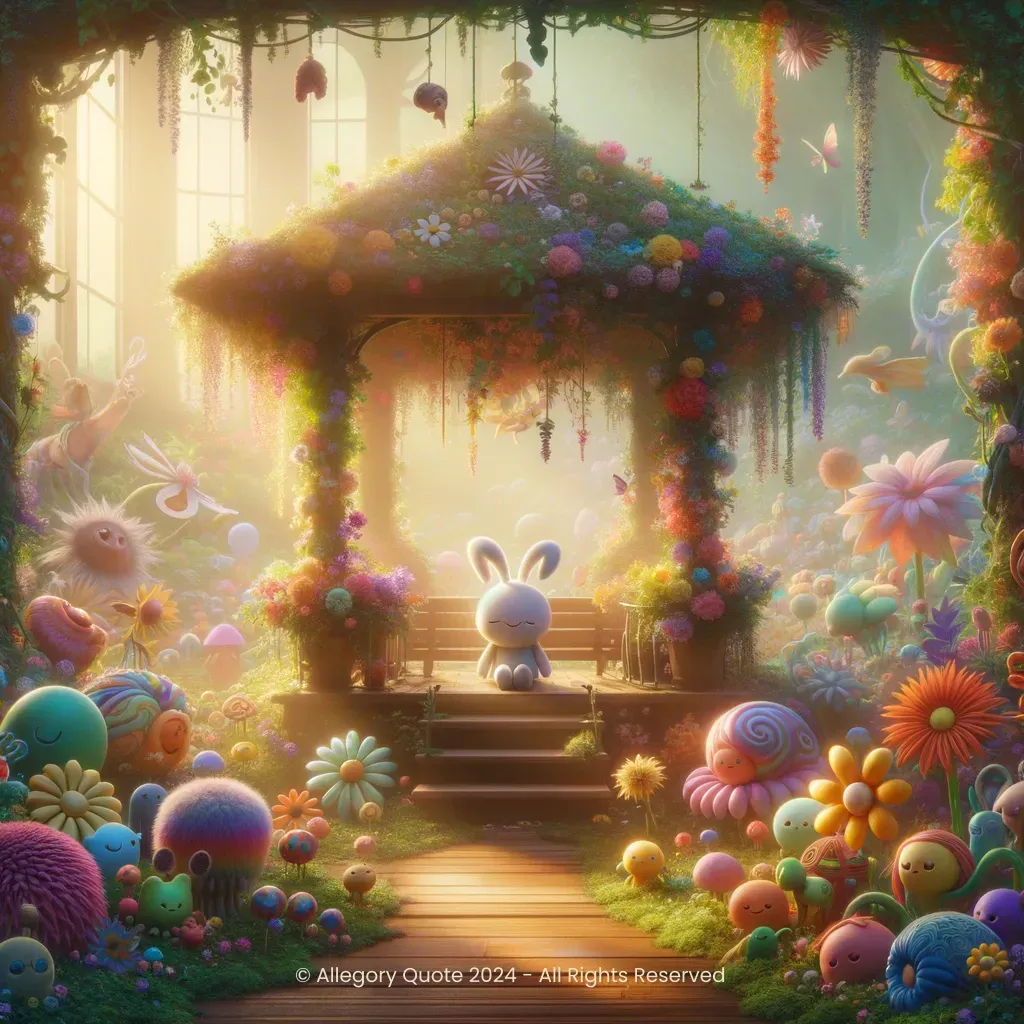I’ve been hiding under your porch because I love you

0
0
0
0
- Meaning
- The phrase humorously reflects the idea that love can be found in unlikely places and that expressions of affection can sometimes be awkward or unconventional. It highlights themes of innocence and the deeper connections that exist, sometimes beneath the surface of traditional expressions of love.
- Allegory
- The elements in the image symbolize the understanding that love can sometimes be hidden or shy, akin to a child hiding to express affection. The vibrant porch represents safety and comfort, while the flowers symbolize the beauty of love. The whimsical creatures express the idea that love brings laughter and happiness in surprising ways.
- Applicability
- This phrase can apply to personal life by encouraging individuals to express their feelings openly, even if it might seem strange or out of place. It serves as a reminder that vulnerability can lead to deeper connections and understanding among people.
- Impact
- The impact of this phrase from 'Toy Story' has contributed to popular culture, encapsulating the quirky innocence of childhood love and friendship. It has been quoted and referenced in various forms of media, showcasing the blend of humor and affection.
- Historical Context
- The quote originates from the 1995 animated movie 'Toy Story', which was groundbreaking in computer animation and is significant in cinematic history as one of the first fully digital animated films.
- Criticisms
- While the phrase is generally well-received, some might argue that it implies an unhealthy obsession or that love should not require hiding or secrecy. Critics may contend that genuine affection should be more transparent.
- Variations
- Variations of this phrase exist in different cultures, expressing quirky yet sincere affection. For example, the Japanese saying 'Aiko no koi wa itazura' translates to 'Childlike love is mischief,' capturing that playful innocence of affection.
-

Every adventure requires a first step.
-

When you wish upon a star, makes no difference who you are.
-

Take her to the moon for me.
-

You can’t marry a man you just met.
-

Oh yes, the past can hurt.
-

You are a toy!
-

Always be yourself. Unless you can be Batman, then always be Batman.
-

I’d rather die tomorrow than live a hundred years without knowing you.
-

The only way to get what you want in this world is through hard work.
-

It’s not until you lose everything that you can truly appreciate everything.
-

I’m surrounded by idiots.
No Comments